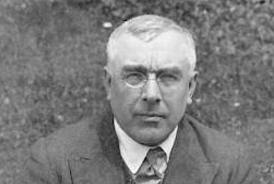Here, among the voluptuous confines of the imagination dwell an alternate, but ever existing, point of view upon the elaborate processes of memory and its position of declarative value among the state of being of an individual. 
Russian philosopher P.D. Ouspensky held groups of intellectuals like himself, and average Joes like myself, to collaborate upon what they viewed as reality in another willful attempt to analyze truth and existence “as we know it”.
Ouspensky, or “O” as many referred to him as, didn’t actually agree to the teachings of collegiate settings with a “God Almighty” professor and a stagnant setting for intellectual exploration. He believed the professors to be “killing science in the same way priests were killing religion”. (p.8 Conscience – Search for Truth) An avid reader, Ouspensky had swept the library aisles reading every piece of natural science and psychology that was available to him in his home in Moscow. As an esoteric philosopher, his preachings were a bit abstract for many viewers, but through the use of continuous group meetings, he was able to develop an audience that stretched from Moscow to London and France. He established himself in the U.S. but also sought information pertaining to mindful revelations in the east with regards to such locations as India and Egypt.
Ouspensky was a man of words as he proved his literate wit as a journalist in pre-revolutionary Russia; (time prior to 1913). Ouspnesky believed that “no statement was meaningful if taken out of context”. (10) How would one view the excerpt of conversation without being submerged in the initial transaction of idea in the first place? He rather refrained from publishing his own works for years after his own death even for fear of an ever-evolving philosophy being mistaken for law, being regarded as “gospel” and being discarded with the same pre-assumptions as we flip through a religious pamphlet pretending to be interested yet knowing we have little say or connection – if any – we have on that world. To Ouspensky, this esoteric, (or ‘exclusive’) means of viewpoint deserved a more open form of interpretatin to better evolve understanding. The cultivating aspect of his teachings were based upon his student’s “sincere will to learn” where the audience initiated their curiosity while displaying their valid interest in the topic at hand. At seventy people per session of about 2 hours, Ouspensky hosted the pinnacle of thought provoking amnesia from the dull-drum that harvested too may a soul from the workers hour during the angst of a pre-revolutionary endeavor.








































